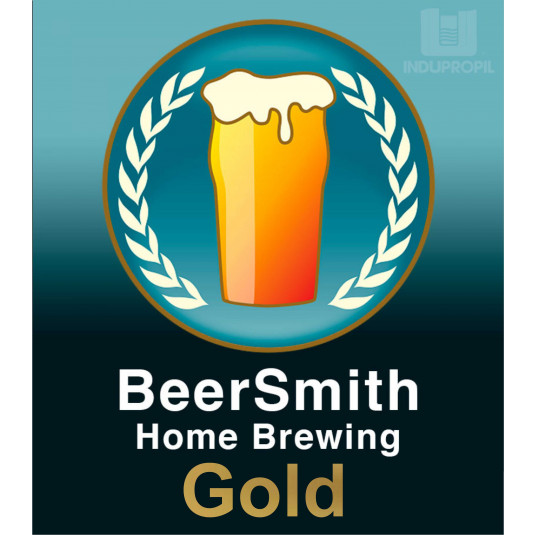
I also included a BeerSmith tutorial video for those interested in setting up their equipment and mash profiles to work with this method. While I’ve written more briefly about my process before, I thought I’d share a more detailed and photo-filled version of what a typical no sparge brew day looks like. I tried it out, it worked great, and now I find myself using the no sparge method for all the 5 gallon batches where I’m not using BIAB, which when traditionally performed is actually a type of no sparge method. On top of all that, it shaves a good 30-45 minutes off of a typical brew day. What I’d heard about no sparge is that it works great for low to moderate OG beers, it results in slightly lower efficiency compared to fly or batch sparge, it can reduce the risk of tannin extraction, and it tends to produce an at least slightly more malty beer. As much as I enjoy brewing beer, and I truly do, I also get a sense of satisfaction from streamlining the process while maintaining a high quality end product. I first heard of the no sparge brewing method a couple years ago and immediately found it appealing. Listen to The Brülosophy Podcast about this variable: Mosaic Of Change IPA by House Of Pendragon.I assume different grains will absorb different amounts? The beer I’m brewing tomorrow has 50% flaked wheat!! No idea kind of absorption I’ll have with that makeup, but we’ll see. But I definitely plan on looking at these numbers again to see what I come up with. I BIAB and let the grain sack sit in a strainer over the pot (mash tun) for about 10min and drain. I just started figuring out these numbers for my system (boil off, absorption, etc), but this is what I got from the batch I brewed last week. That’s about what I experienced during my first all grain last weekend. Is it based on past experience? Most of what I’ve read suggests 1.0 - 1.25 gallons of water absorbed per 10 lbs of grain. 75 gal lost to absorption sounds low to me.

If you’re off a 1/2 gallon somewhere–it will be fine and you can make an adjustment next time.ĥgal batchġ.5qrt/lb for mash = 15qrts (or 3.75gal) of water for mash It’s the same as with all of this stuff, I don’t worry if it’s not perfect. 1) + (1 gal boil-off) = 3.7įor no-sparge BIAB, just start with 6.5 gallons (which includes boil-off) and add the amount of water that will be absorbed by the grain. Sparge volume – Calculate by adding the absorption, boil-off, and difference between your batch size (5.5) and mash water volume. 1 gal per pound.īoil-off – This differs per elevation…it’s around 1 gal per hour on a stovetop but will be more on a turkey burner (depending on how hard you boil). Mash volume – Multiply the total grain bill by the quart volume (typically 1.25).Ībsorption – Account for absorption at the rate of. It’s a little more complicated for two pots vs no sparge biab. This is what I used to do for calculations (before BeerSmith). You’ll sparge and combine and at some point because you need to get your preboil volume correct. I don’t think it matters when you add the top off water honestly.


How much is too much when you batch sparge? How many of you add top up water to the boil kettle instead of just adding more water to the sparge?


 0 kommentar(er)
0 kommentar(er)
